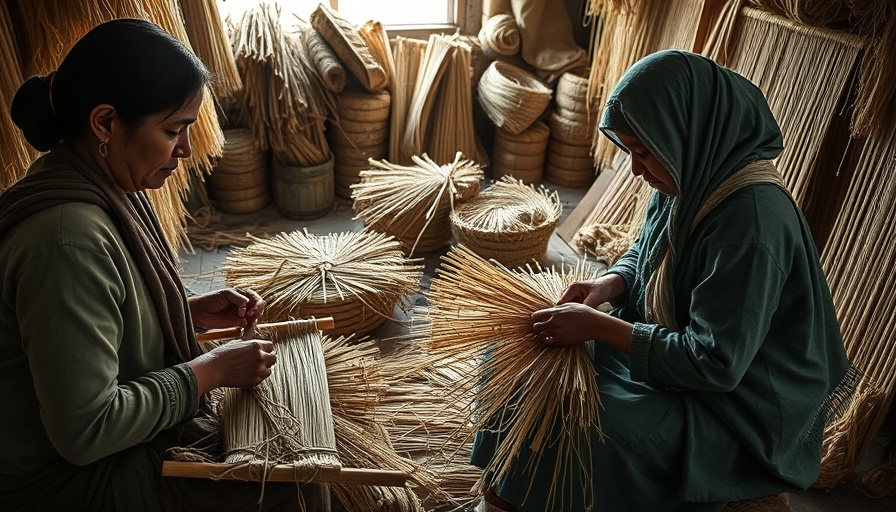
The Growing Bamboo Revolution Against Plastic Pollution
The world stands at a crossroads when it comes to plastic consumption, where our reliance on synthetic materials has contributed significantly to environmental degradation. With an estimated 300 million tons of plastic waste generated annually, there is a critical need for sustainable alternatives. Bamboo has emerged as a promising hero that could help tackle the escalating plastic crisis while driving sustainable economic development.
Bamboo: Nature's Sustainable Powerhouse
Known as “green gold,” bamboo holds immense economic potential with a total output value of US$75 billion in 2023. With over 7.5 million hectares of bamboo forests, China has utilized this remarkable plant for over 7,000 years, traditionally in products ranging from building materials to everyday utensils.
The strong and fast-growing nature of bamboo—some species can grow over three feet a day—makes it a sustainable resource. Unlike plastic, bamboo does not rely on chemical fertilizers and can thrive on minimal water. These characteristics make it not just a choice for the present, but a long-term solution in the fight against climate change.
Applications of Bamboo in Replacing Plastics
As a versatile option for a wide range of applications, bamboo can replace harmful single-use plastics commonly found in straws, cups, and food packaging. Utilizing bamboo-based alternatives not only reduces carbon footprints but also limits the adverse environmental impact observed with traditional plastics, which contribute to biodiversity loss and pollution in both terrestrial and marine ecosystems.
Researchers are exploring the potential of bamboo bioplastics, demonstrating its ability to be processed into biodegradable packaging, utensils, and even textiles. Innovations in bamboo pulp could lead to packaging materials that decompose quickly, helping to redirect plastic waste from landfills and oceans.
Challenges and Future Insights
Despite its promise, the widespread adoption of bamboo bioplastics faces challenges, particularly in scaling up production. Currently, manufacturing bamboo-based products remains expensive when compared to petroleum-derived plastics. Ongoing research and investment will be crucial to overcome these barriers, ensuring that bamboo can fulfill the functional needs of various industries while remaining cost-effective.
However, with commitment from governments, industries, and consumers, bamboo can play a pivotal role in fostering a circular economy and promoting sustainable living practices. Bamboo-based products symbolize a step toward reducing plastic pollution and embracing eco-friendly products that prioritize the planet.
 Add Row
Add Row  Add
Add 



Write A Comment